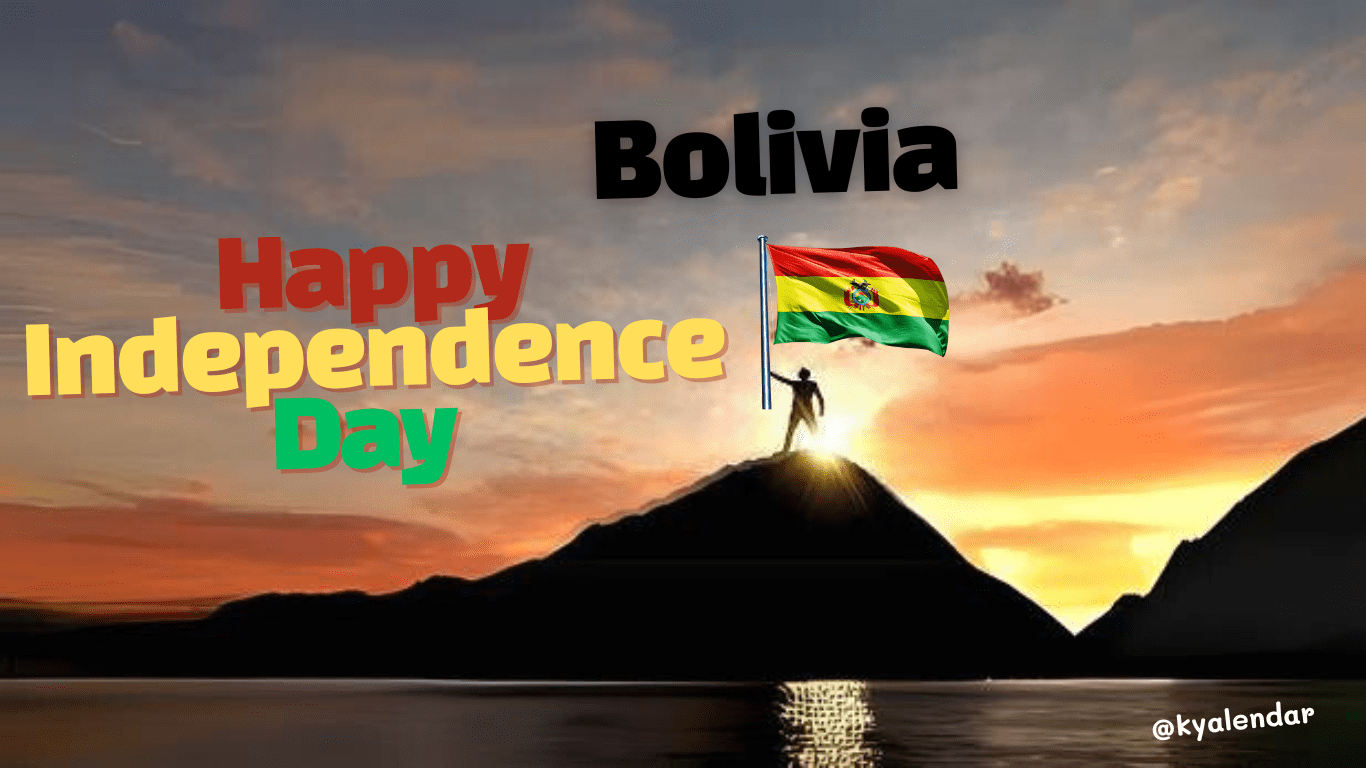
- This event has passed.
National Day in Bolivia
August 6

National Day in Bolivia, also known as Independence Day, is celebrated on August 6th each year. This significant national holiday marks the anniversary of Bolivia’s declaration of independence from Spanish rule in 1825. The day is a vibrant celebration of Bolivian history, culture, and national pride.
Historical Background
Bolivia’s struggle for independence was part of the broader Latin American independence movement, which saw many countries in the region break free from Spanish colonial rule. Bolivia’s path to independence was marked by a series of revolutionary efforts, culminating in the declaration of independence on August 6, 1825. The key figure in Bolivia’s independence movement was Simón Bolívar, a leader in the fight for freedom across South America. The country was named in his honour, reflecting his pivotal role in its history.
Celebrations and Traditions
National Day in Bolivia is celebrated with a mix of official ceremonies, cultural events, and festive activities. The observance of this day is characterised by:
- Parades and Military Marches: The streets of major Bolivian cities come alive with colourful parades and military marches. These processions often feature traditional music, dance, and displays of national pride, with military units showcasing their ceremonial skills.
- Ceremonial Events: Official ceremonies are held at government buildings and historical sites. These events typically include speeches by government officials, presentations of awards, and commemorations of Bolivia’s historical milestones.
- Cultural Performances: Traditional Bolivian music and dance are prominent features of National Day celebrations. Performances may include folkloric dances such as the Morenada and Diablada, which are known for their elaborate costumes and energetic rhythms.
- Festive Gatherings: Families and communities come together for festive gatherings, often featuring traditional Bolivian cuisine. Dishes such as salteñas (savory pastries), anticuchos (grilled skewers), and llajwa (a spicy salsa) are enjoyed during these celebrations.
- Fireworks: In the evening, fireworks displays light up the sky, adding a festive and celebratory atmosphere to the day’s events.
Cultural Significance
National Day is a time for Bolivians to reflect on their country’s rich cultural heritage and history. The celebrations serve as a reminder of Bolivia’s journey to independence and the values of freedom and sovereignty. The day also highlights Bolivia’s diverse cultural traditions, including its indigenous heritage and the blending of Spanish and local influences.
Education and Reflection
In schools and educational institutions, National Day is an opportunity to teach students about Bolivia’s history and the significance of its independence. Lessons often focus on the key events and figures in Bolivia’s path to freedom, fostering a sense of national pride and understanding of the country’s heritage.
National Pride and Unity
National Day fosters a strong sense of national pride and unity among Bolivians. It is a day when people from all walks of life come together to celebrate their shared identity and achievements. The festivities serve to reinforce national cohesion and collective pride in Bolivia’s history and cultural diversity.
Conclusion
National Day in Bolivia is a vibrant celebration of the country’s independence and cultural heritage. Marked by parades, ceremonies, cultural performances, and festive gatherings, the day honours Bolivia’s historical journey to freedom and its rich cultural traditions. As Bolivians come together to celebrate their national identity, National Day serves as a poignant reminder of the country’s historical achievements and the values of unity and pride that continue to shape its future.